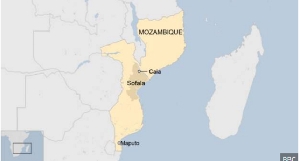- Home - Sports
- Soccer Portal
- Archived Sports News
- Sports Videos | TV
- Year In Review
- Sports Photos
- Sports Headlines
- Boxing
- Athletics
- Basketball
- Bodybuilding
- Cricket
- Golf
- Handball
- Hockey
- Martial Arts
- Tennis
- Volleyball
- Other Sports

Health News of Saturday, 6 March 2021
Source: africa.businessinsider.com
Ghana is using drones to deliver coronavirus vaccines to rural communities
Ghana has become the first country to launch a nationwide program to deliver coronavirus vaccines with drones.
Zipline started delivering the shots on Tuesday as part of the WHO's first shipment of vaccines through COVAX, its program thataims to provide poorer countries with enough doses to cover 20% of their population.
Zipline, a San Francisco startup, has been delivering medical supplies including blood, personal protective equipment, and vaccines since 2016 using patented, autonomous drones.
Doctors can use Zipline's app to place orders and track shipments.
As well as national operations in Rwanda and Ghana , Zipline also has partnerships with Walmart and Novant Health in the US, and its PPE deliveries become the first long-range drone logistics flights to be approved by the FAA .
Zipline started the drone deliveries in Ghana on Tuesday when it distributed 4,500 doses across the Ashanti Region in the country's south in 36 separate journeys in a partnership with the Ghanaian government and UPS.
Around 2.5 million doses will be delivered in Ghana using the drones, GAVI said .
"Not only does this make Ghana the world's first country to deploy drones on a national scale for the delivery of COVID-19 vaccines, but is also a giant effort in ensuring equitable access and enabling Ghana to fully utilize its healthcare infrastructure to deliver vaccines," Zipline CEO Keller Rinaudo said in a statement.
COVAX shipped 600,000 doses of the vaccine created by the University of Oxford and AstraZeneca to the capital, Accra, in late February.
But distributing vaccine doses globally is proving to be a mammoth task .
Even when vaccines do make it to developing countries, they might lack the transport links and road networks to distribute the doses to everyone in need.
This is complicated further by storage requirements . Pfizer's vaccine has to be transported at -94 degrees Fahrenheit through a system of deep-freeze airport warehouses and then refrigerated in vehicles using dry ice and GPS temperature-monitoring devices, while AstraZeneca's and Moderna 's can be transported at fridge temperatures.
Zipline told Bloomberg it has developed drones that can deliver "all leading COVID-19 vaccines."











